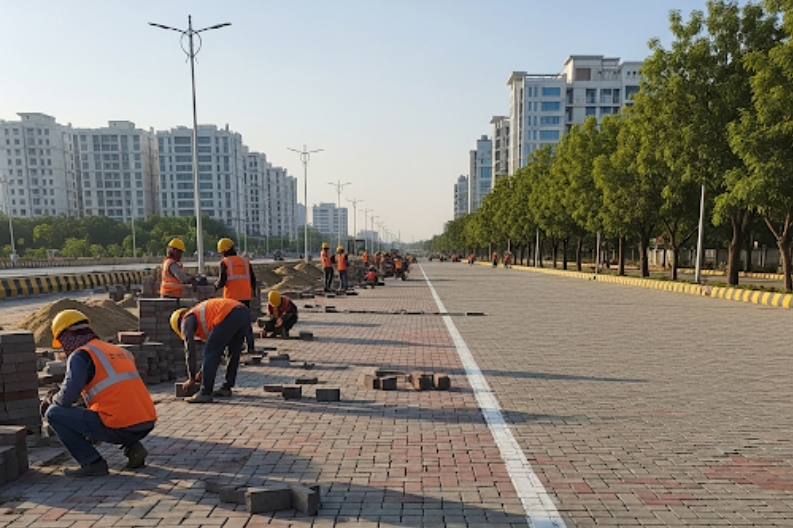What is a Caste Certificate?

The Indian Constitution prescribes the list of Scheduled Castes and Scheduled Tribes in the article 341 and 342 respectively. These statutory lists were inscribed for the very first time in the constitution under the Constitution Order of 1950 for the Scheduled Castes and Tribes. The caste certificate is an authentic stamp that recognizes these special classes of the society. In addition, it gives them the opportunity to avail the privileges that the Indian government provides them.
With the passing years, the governments have modified, updated, and supplemented these lists according to the demand of the citizens. A caste certificate is a document that the government gives to an individual who belongs to a particular caste or tribe. Therefore, every Indian state follows the prescribed rules for providing this certificate to the Scheduled Castes and Tribes in their state.
The sections in this article will be talking about the procedure to apply for a caste certificate in Mohali, Punjab. As a result, you can find details about the documents required to complete the process, the time taken to process the application, and the fees of application.
Why do we need a Caste Certificate?
The Indian system of Protective Discrimination presents a specific range of benefits for the citizens belonging to these special categories. Without the possession of a caste certificate, you have no benefits. In addition, you will not be allowed to make use of the privileges that the government provides to your caste or tribe. On showing the caste certificate as an identity proof, you can enrol in colleges and schools, apply for government jobs, and get special financial and economic benefits.
If you belong to one of the Scheduled Castes or Scheduled Tribes, you can avail government benefits as mentioned in the list below.
- A certain number of reserved seats in the Governmental job posts and Legislature.
- Reserved seats in Government and private colleges.
- The opportunity to appear for certain government exams with special upper age limits.
- Special cut-off marks for multiple national-level examinations.
- Scholarships in different streams of education.
- Benefits in Pension schemes provided by the state or central government.
- Reservations in Indian Railways for travel tickets.
You can also get special discounts on college and school fees according to the regulations laid by the Indian government. In order to avail these benefits, it is rudimentary to apply for a Caste Certificate in your state of residence.
The state government of Punjab and the Legislative Assembly have created the Punjab Scheduled Castes Land Development and Finance Corporations. The aim of these institutions is to enhance the quality of life of the Scheduled Castes and Tribes in the state. Therefore, they design different schemes and policies for these special classes and implement them across the state. Their team ensures that the financial aids are distributed to the deserving citizens across the state.
Eligibility Conditions

The government only provides the caste certificates to the Indian citizens who satisfy the cases mentioned in the list below.
- The applicant is an Indian citizen.
- A person applying for the caste certificate should be the permanent resident of Punjab state i.e. the person must have the proof of his residence in the state for the last 5 years.
Procedure for obtaining a Caste Certificate

- Offline
For offline application, follow the steps as mentioned in the list below.
- Visit your nearest Revenue, Tehsil, Circle, or the concerning office of the department of welfare for Backward Classes in your area.
- If you personally cannot visit the office, write an application on a plain A4 size paper and sign it (or put your thumb impression). When you (or someone on your behalf) visits the respective office, ask for the Caste Certificate application form.
- Write the details as mentioned on the application. Once the form is complete, attach the required documents and submit it to the concerning officer in the office.
- The authorities will verify your application with the submitted documents and send your Duly Stamped Caste Certificate to your mentioned address with the time frame.
- Online
- Visit the online portal of the Government of Punjab to apply for your Certificate.
- If you’re visiting for the first time, click on ‘New User’ to make your account.
- Enter the details and click on the ‘Fresh Application’ on the webpage.
- Click on ‘Apply’ button that you see right next to the Service option. (For already registered users)
- (For new application) Select Alternative 2 which is the Online Application Form link. Fill the form and click on Submit.
- Once the application is complete, click on ‘View Saved Application’ and upload the required and supporting documents.
The application fees for obtaining a Caste Certificate from your nearest Suwidha Centre is Rs. 30. Apart from this, the government charges Rs. 10 as Court Fee Stamp to validate your document.
Office Locations 100
Documents Required

Along with the application for Caste Certificate, an individual must furnish the documents mentioned in the list below.
- Application form for the Caste Certificate
- Ration Card
- Any proof of residence (Electricity bill, Rent agreement, etc.)
- A copy of the Verification Leaf that is issued by your local Municipal Councillor, Sarpanch, or Subedaar)
- Birth Certificate, school or college leaving certificate (Age proof Documents)
- A Self Declaration Form
- A scanned copy of your passport size photograph
- Caste Certificate of the applicant’s parents or grandparents (if available)
- A copy of School Leaving Certificate or Transfer Certificate
The validity of the Caste Certificate
The Caste Certificate is valid for an entire lifetime fo the individual. In case if it is not, the period of validity will be mentioned on the certificate. If it isn’t mentioned on yours, your caste certificate will be valid for your lifetime.
How long does it take to receive the Caste Certificate

Once you have successfully applied for the Caste Certificate online, the government delivers the caste certificate to your address within 7 working days. In case of offline applications, the processing is usually done within 1 working day. If it doesn’t happen during that time frame, the authorities will inform you about the time frame.
Next Read : eProcurement Punjab – How does it Work?
Government
Strict Firecracker Rules in Mohali for Upcoming Festivals
The Mohali district in Punjab is taking strong steps to control firecracker usage during festivals.

ChatGPT Generated (Not a Real Image)
Strict firecracker rules in Mohali for upcoming festivals aim to protect public health and improve air quality during the festive season. The Mohali district administration in Punjab has taken strong steps to reduce pollution caused by fireworks. These measures will apply to popular celebrations such as Diwali, Guru Nanak Dev Ji’s Parkash Purab, Christmas, and New Year’s Eve to ensure safer and cleaner festivities for everyone.
The administration introduced these restrictions under Section 163 of the BNNS, directly banning the sale, use, and storage of traditional firecrackers. However, officials have allowed people to burst approved crackers only during specific hours.
Here are the permitted timings:
- Diwali: 8 PM to 10 PM
- Guru Nanak Dev Ji’s Parkash Purab (November 5): 4 AM to 5 AM and 9 PM to 10 PM
- Christmas (December 25-26): 11:55 PM to 12:30 AM
- New Year’s Eve (December 31, 2025 – January 1, 2026): 11:55 PM to 12:30 AM
District Magistrate Komal Mittal explained that Punjab has completely banned series or chain fireworks, also known as laris. These types of crackers release excessive smoke and noise, which seriously affect air quality and public health. Therefore, only green crackers, which are safer and less polluting, will be permitted.
Green crackers do not contain harmful elements like barium salts, mercury, antimony, or lead. They release fewer toxic gases and create lower noise levels. Moreover, only licensed sellers can trade these eco-friendly crackers. The administration believes this decision will encourage people to celebrate responsibly and help protect the environment at the same time.
To prevent illegal online sales, major e-commerce websites such as Amazon and Flipkart are strictly prohibited from accepting firecracker orders in Mohali. Authorities are continuously monitoring online activities to ensure full compliance with this order.
Meanwhile, the local police and the Pollution Control Department will jointly enforce these restrictions. They will actively check marketplaces and residential areas to stop violations. In addition, the Punjab Pollution Control Board (PPCB) will monitor air quality in different cities and towns. The PPCB will work according to the Central Pollution Control Board (CPCB) guidelines and pay special attention to non-attainment cities, where air quality consistently fails to meet government standards.
Officials pointed out that these restrictions fully align with the rulings of the Supreme Court of India and the National Green Tribunal (NGT). Because of this legal backing, the move carries both administrative and judicial support. It also reinforces the government’s ongoing mission to protect citizens’ health while maintaining environmental balance.
Anyone who violates these firecracker rules will face strict consequences. Offenders can be fined or even jailed under Section 15 of the Environment (Protection) Act, 1986, along with penalties under other environmental laws. The prohibitory orders will remain in effect from October 1, 2025, to January 2, 2026, covering the main festive period.
Environmental experts and health officials have welcomed this decision. They explained that during Diwali and winter, Punjab often experiences a sharp increase in air pollution due to smoke from fireworks and stubble burning. Therefore, these restrictions will likely help reduce harmful gases and dust particles in the atmosphere. Moreover, schools, NGOs, and local communities are promoting awareness campaigns about celebrating festivals with fewer crackers and more sustainable practices.
Ultimately, strict firecracker rules in Mohali for upcoming festivals reflect the Punjab government’s firm commitment to cleaner air and safer celebrations. With collective cooperation from citizens. These measures can create pollution-free festivities, protect public health, and ensure a healthier environment for future generations.
Government
Haryana Launches an Important Plan for a Greener Future
In a significant step towards protecting the environment, Haryana’s Chief Minister Nayab Singh Saini announced the State Environment Plan (SEP) 2025-26 on Tuesday.

ChatGPT Generated (Not a Real Image)
In a significant move for sustainability, Haryana launches an important plan with the introduction of the State Environment Plan (SEP) 2025-26. Announced on Tuesday by Chief Minister Nayab Singh Saini in Panchkula, this initiative aims to make Haryana a leader in environmental protection and future-ready development. The plan focuses on achieving Sustainable Development Goals (SDGs) with clear targets to improve living conditions across the state.
The SEP is more than just a framework. It includes a detailed study of Haryana’s environmental condition. The focus areas are agriculture, waste management, transport, industry, and pollution control.
The State Pollution Control Board worked with the Indian Green Service Development (IGSD) and the Energy and Resources Institute (TERI) to draft this plan. A key highlight is the report A Dual Strategy Sprint Towards Sustainability. It calls for reducing both carbon dioxide emissions and short-lived climate pollutants. This approach will improve air quality and aligns with regional efforts in Punjab.
Waste management forms another crucial part of the SEP. It introduces 13 Integrated Solid Waste Management Plants to tackle growing urban challenges in cities like Mohali and Chandigarh. The plan also emphasizes improving water and air quality, which are vital for public health and well-being.
Officials noted that every component of the SEP will help Haryana use resources wisely while promoting long-term sustainability. The initiative shows the state’s proactive stance against pressing issues such as pollution, waste, and resource depletion.
The timing of this plan is vital. Global awareness of environmental challenges is growing quickly. By using innovative solutions and involving both institutions and citizens, Haryana aims to become a model state for eco-friendly growth.
Chief Minister Saini’s vision for a greener Haryana is clear in this bold step. The SEP seeks to protect resources and inspire communities to adopt sustainable practices.
In conclusion, Haryana launches an important plan that acts as a blueprint for future growth rooted in environmental responsibility. With strong policies, organizational support, and citizen involvement, the state is paving the way for a healthier tomorrow.
Government
Haryana CM Announces New Paver Block Roads in Panchkula
Improving Roads in Panchkula
On Monday, Haryana’s Chief Minister, Nayab Singh Saini, made an important announcement.

Improving Roads in Panchkula
On Monday, Haryana CM Announces New Paver Block Roads as Chief Minister Nayab Singh Saini ordered the construction of new roads in Panchkula district. These roads will replace the old, dusty “kutcha” roads and benefit 19 villages in the hilly areas of Morni and Kalka.
Panchkula is about 20 kilometers from Chandigarh. This makes it an important link between Haryana and Punjab. The new roads will help make travel easier for many people living in the region.
Details of the Road Projects
The Chief Minister has directed that a total of 61 kilometers of roads be paved. Each of these roads will be 12 feet wide. This width will help ensure smooth traffic flow for both locals and visitors.
- The road upgrades include:
- Panipat-Safidon (41 km)
- Safidon-Jind (21.65 km)
- Saha Chowk-Panchkula-Yamunanagar (four-lane road)
- Saha Chowk-Kalpi
- Tohana-Ratia
These upgrades will not only make travel easier but also improve safety for everyone using the roads.
Additional Road Projects
Beyond the 61 kilometers of paver block roads, Saini has asked officials to speed up work on several more road projects in Panchkula. These include:
- Thapali Badisher-Koti (1.68 km)
- Pinjore Mallah-Mangniwala (1.20 km)
- Gobindpur-Thathar (5.35 km)
These projects aim to enhance connectivity in Panchkula and support the growing population.
Next Steps for the Construction
During a review meeting with officials from the public works and forest departments, Saini emphasized the need for timely action. He instructed that work should begin quickly after obtaining a no-objection certificate (NoC) from the forest department. This certificate is necessary for construction in areas with trees and wildlife.
Principal Secretary to the Chief Minister, Arun Gupta, and Additional Chief Secretary (PWD), Anurag Agarwal, were present at the meeting. They discussed strategies to ensure that the projects are completed efficiently and on time.
Background on Panchkula
Panchkula is not just another town. It is part of the larger region around Chandigarh, which is known to be one of the cleanest cities in India. Cleaner cities often produce better living conditions and infrastructure for nearby areas, like Panchkula. The development of new roads will help improve civic services and support the needs of residents.
The Impact of Better Roads
Better roads mean more than just smoother driving. They connect communities, help businesses grow, and make it easier for people to access education and healthcare. For the hilly areas of Morni and Kalka, these roads will make it easier for residents to travel to nearby towns and cities.
Local farmers can transport their goods more easily. This can lead to increased sales and better incomes. Students will also find it easier to reach schools and colleges. Parents will have less worry about how their children get to school.
The Future of Infrastructure in Haryana
The move to replace kutcha roads with paver blocks is part of a larger plan. The Haryana government is focusing on improving rural infrastructure. This effort aims to boost the local economy and improve the quality of life for people living in these areas.
As more projects like this are developed, the future looks bright for the communities in Haryana. Residents can look forward to better roads, stronger connections, and improved services.
Conclusion
In conclusion, Haryana CM Announces New Paver Block Roads, marking a positive step for Panchkula. The construction of 61 kilometers of new paver block roads will greatly benefit the region. With prompt action and good planning, these improvements will help transform the lives of many people living in the hilly areas of Morni and Kalka.
-

 Entertainment3 years ago
Entertainment3 years agoTop 15 Punjabi Models – Male and Female List
-

 City Guide3 years ago
City Guide3 years ago3B2 Mohali Market Shops: Discover 44 Hidden Gems
-

 Entertainment3 years ago
Entertainment3 years agoTop 11 Punjabi Comedians of All Time
-

 Jobs4 years ago
Jobs4 years agoTop 20 IT Companies in Mohali
-

 Food4 years ago
Food4 years ago11 Best Restaurants in Mohali You Must Visit
-

 Food3 years ago
Food3 years agoTop 15 Cafes in Mohali you must visit
-

 Property2 years ago
Property2 years agoWho Lives In Homeland Mohali: Punjabi Celebrities, Business People…
-

 Education2 years ago
Education2 years ago10 Famous Punjabi Writers With A Great Impact On The Literary World
